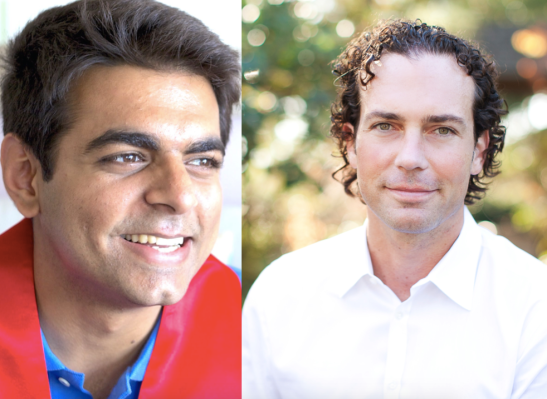Kleiner Perkins has launched a new, small seed stage investment initiative within its latest fund to invest in technology like virtual reality and drones that will offer founders a suite of additional services.
As part of this new fund called the Edge fund, Kleiner Perkins has brought on Roneil Rumburg, am engineer, and Ruby Lee, a product hire, to build software that will help those founders deal with various problems like recruiting and operations. Kleiner Perkins will write $250,000 checks as uncapped convertible notes.
“At beginning of this year or sometime late last year — maybe longer — [founding partner] Anjney [Midha] and I had been brainstorming,” Kleiner Perkins managing partner Mike Abbott said. “When were looking at the future of venture capital, we’re feeling pretty strongly there has to be more software and APIs that are offered by venture firms to existing portfolio companies, especially new ones.”
This fund has a bit of a different structure too. Midha and the team plan to spend around two of the days investing, and the other days working “in product mode” — which would mean engineering, designing and shipping code.
“The actual workflow isn’t that different from our own founders,” Midha said. “If you come to the San Francisco office, the actual workflow isn’t that different from our own founders. Our customers are founders. If we’re not adding value, if we aren’t helping our founders in that mode, we have to change that just like any other new generation funds.”
Like many new venture capital configurations, the Edge fund is still an experiment. Midha will spend around a half hour to 45 minutes meeting with companies and then say they will give a final verdict on an investment in around 72 hours. The goal is to be as “founder friendly” as possible — though, in theory, most firms would say they would be shooting for that goal. (Update: As a clarification, Abbott has basically no day-to-day involvement in the fund and only has a mentorship role.)
This new fund’s structure as part of its existing fund is not entirely different from its iFund, an earlier venture that saw investments in companies like Shazam — though this involves staffing up to add value. It also enlists some of Kleiner Perkins’ youngest partners, which is interesting as observers see Kleiner Perkins at a moment where there may be a generational transfer, with Midha and Abbott the firm’s latest stars. Kleiner Perkins, though, is familiar with these kinds of changes, Abbott said.
“We’re both focused on the future,” he said. “We have this story of a brand and a network and a platform, and so now we have to think, ‘how do we bring this to the next level.’ It’s an interesting question. Generational transitions are important, and this firm has been around for about 45 years — during that time going through three or four transitions. That transition is managed through the other five general partners and myself. This [fund] is looking at, from an entrepreneur’s perspective, how do we continue to provide unfair advantages to the companies that work with Kleiner Perkins.”
Kleiner Perkins has also seen a recent run of success thanks to its investments in MyFitnessPal (acquired by Under Armour) and has made new investments in Shyp and DoorDash. But in many ways, it doesn’t come down to just the brand, and firms have to show startups — especially as valuations are racing higher and higher — that they have to contribute some additional value beyond just a check.
To his credit, Abbott says he too is shipping code (and he prefers Python). “You’ll be hard pressed to find a fund where founders are spending more code than investing,” Midha said.
